The Pinhoti Trail is the Alabama Trail Foundation’s first Primary Project. The Pinhoti includes six land ownerships, crosses six U.S. Highways, traverses six Alabama counties, and is over 160 miles in length. Volunteers perform most of the new trail development and maintenance of the existing trail.
There is passion by all involved to have the Pinhoti represent this very important part of Alabama as well as tie into the Appalachian Trail, recognizing Alabama’s Appalachia heritage along with that of her sister states of Georgia and Tennessee. Towns along the trail are asking for assistance on how to better derive economic benefits from the trail. All indications are that the Pinhoti is a perfect scenario to launch the Foundation’s Primary Project program.
The Pinhoti has local commitment but lacks the planning and organization to enhance the Pinhoti to a socially, ecologically, and economically sustainable trail system. Achieving this will require coordination across multiple jurisdictional boundaries, obtaining and incorporating contemporary designs, and pursuing and obtaining traditional and nontraditional funds.
The Foundation provides dedicated leadership in developing, mentoring, and coaching a local collaborative to allow the Pinhoti, and other Primary Projects that may come, to grow and evolve into a modern business model that grows volunteerism and advocacy into supportable programing. The Alabama Trails Foundation brings to the Pinhoti the resources to seek out the highest rigor in design, planning, and organization. The Foundation is positioning itself as the organization that Alabama trail groups can rely on to help them through those “pinch points” in organizational growth and guide them into a deep dive towards organizational stability and justifiable trail systems that are adaptive and responsive to engaging new partners and funding sources; and pass the litmus test of sustainability.
The Pinhoti, rises from Flagg Mountain to traverse Rebecca, Horn, Cheaha, Duggar, and Indian mountains before it crosses into Georgia. Navigating the Ridge and Valley province of the Appalachian Highlands physiographic region, the Pinhoti trail invites the hiker into the culture and history of Alabama. Thought to be the boundary between the Creek and Cherokee nations, this area is a rich landscape with native ecosystems such as the remnant mountain longleaf and American chestnut forests. Nestled in the foothills, are small towns and communities embracing their outdoor heritage and looking for ways to host visitors to this special place. The Pinhoti is within an hour drive of over eight million people. While the cities of Birmingham and Atlanta are quickly building more livable communities, the Pinhoti offers a more profound outdoor experience not found in the urban environment.
The Foundation is sponsoring the development of a master plan, engaging stakeholders, and supporting the development of multi-jurisdictional collaboration and governance. By engaging contemporary landscape and structural architects with a history of trail planning and design, the master plan will become a key document to guide future decisions regarding trail enhancements. Complementing the built environment design guide, the trail and surrounding natural environment is being assessed to identify areas along the trail that are not sustainable. The goal: a trail that is user-friendly, safer, that celebrates, protects and makes accessible this special part of Alabama’s Appalachia and that can spur economic development.
Bringing the Pinhoti to a standard equal to the importance of its representative landscape is an important step in developing this Alabama resource to a standard that is expected by today’s trail users. The master plan will embrace the important cultural, historic, scenic and natural aspects of the trail, provide design criteria to improve visitor experiences, and explore linkages to local communities.
The master plan is envisioned as a living document that will be completed in early 2019. It will be presented to the land management agencies and private conservation groups as an analysis and a series of case studies and recommendations to allow the trail to be managed as a sustainable resource. The Foundation will continue to collaborate as a partner to prioritize the plan’s recommendations, leverage funds towards grants, donations, and investments to incrementally make improvements along the trail.
Project Updates

Celebrate Trails Day 2024
Media Advisory For: April 27, 2024 Eleventh Annual Celebrate Trails Day Highlights Impact of Trails on Local Communities, including both the Chief Ladiga Trail and the Pinhoti Trail. Piedmont and Jacksonville, Alabama. On Saturday, April 27, join us as …
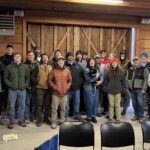
Investing in Trail Maintainers
In March, the Alabama Trails Foundation hosted a chainsaw handling and safety course for twenty-one trail maintainers. The Foundation partnered with the Alabama Pinhoti Trail Association to recruit active trail maintainers for the training. Many of the …
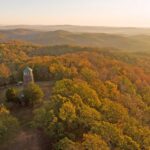
Pines, Poets and Plein Air
Mark your calendar! Join us from 2 to 4 PM on Sunday, October 22 when Flagg Mountain hosts Pines, Poets and Plein Air. The free public program will feature artists, writers and naturalists as they share information and interpret the mountain’s ecology …

Birds, Beats, and Bach
FOR IMMEDIATE RELEASE DATE: August 25, 2023 FLAGG MOUNTAIN OFFERS “BIRDS, BEATS AND BACH” IN SEPTEMBER On Sunday, Sept. 24, Flagg Mountain will host a special program showcasing Alabama musicians and experts in conversation about the mountain’s ecology …

Alabama Forestry Commission, Department of Conservation, and USDA Forest Service Collaborate to Enhance Alabama’s Pinhoti Trail System
Governor Ivey signed an agreement on August 1, 2023 to further the coordination between the USDA Forest Service, Alabama Forestry Commission, and the Alabama Department of Conservation and Natural Resources for the sustainable …
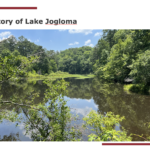
Webinar: The Cultural Significance of Jogloma-Scott Lake
The State of Alabama obtained the land that now includes Jogloma-Scott Lake on June 3, 1856. They intended to expand the Alabama and Tennessee Railroad. No railroad was ever built in the area. Arthur C. Scott, also known as Offie, a mechanic living in …
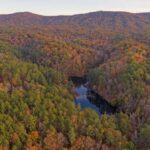
Jogloma-Scott Lake Project Webinar
Learn about ongoing planning for the Jogloma-Scott Lake area along the Pinhoti Trail. https://youtu.be/Te-dxgLJErs

Alabama State Council on the Arts joins the Flagg Mountain Partnership
The Alabama Trails Foundation will receive a $10,000 award from the Alabama State Council on the Arts to evaluate how to engage the arts and artisans to support sustainable use at the newly renovated Flagg Mountain Observation Tower. Rick Oates, State …

June 15 Grand Reopening of the Observation Tower
The Flagg Mountain Observation Tower is officially reopened! Governor Kay Ivey opened the gates to the tower, officially closed since the late 1980’s. The 54 foot tall tower sits atop the first 1,000 foot mountain in the Appalachian Mountain chain, off …

Restoring History on Flagg Mountain
By Cole Sikes, Communications & Public Relations Specialist, Alabama Forestry Commission Nestled among the rolling hills and towering timber of Coosa County lies the community of Weogufka. This area is known for its scenic views, winding roads, and …

The Last Last Hike with Nimblewill (Sunny) Nomad
Celebrating an epic journey that started at Flagg Mountain, don’t miss this wonderful short film: The Last Last Hike.In the film, 83-year-old Nimblewill Nomad is about to become the oldest person to thru-hike the Appalachian Trail. But he didn’t start …

Building Blocks: Trails, People, & Partners
In August 2020, through a partnership across the network of agency leaders and trail volunteers we completed the Recreational Site Use Plan for the Weogufka State Forest. The intent of this plan is to inform decisions and provide a guide for future res …
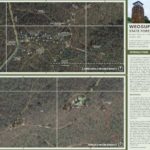
Flagg Mountain Site Use Plan
This Site Use Plan is presented by the Alabama Trails Foundation in support of the Alabama Forestry Commission (AFC) and their partners. The intent of this Plan is to inform decisions and provide a guide for future restoration and improvement on the 24 …
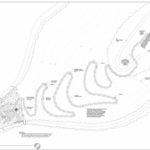
TRAIL CONSTRUCTION BEGINS AT FLAGG MOUNTAIN
FOR IMMEDIATE RELEASE CONTACT INFORMATION: Cynthia Ragland, Alabama Trails Foundation AlabamaPinhoti@gmail.com C: 205-310-6533 Birmingham, Alabama – The Alabama Trails Foundation announces that work has started on the trail construction at Flagg …

Flagg Mountain Restoration
Flagg Mountain: Alabama’s Gateway to the Appalachians If the Pinhoti trail represents a journey through Alabama’s Appalachians, then Flagg Mountain is the gateway. The southern most point on the Appalachian chain over 1000 feet, Flagg Mountain is rich …

The Alabama Pinhoti Trail Built Environment Master Plan
A Plan for the Future: The summer of 2019 marked the release of “The Alabama Pinhoti Trail Built Environment Master Plan” . The Master Plan quantifies and objectively analyzes the 170-mile trail, providing a platform for building teams to implement …

September 22, 2018 Stakeholder Meeting
Meetings were held in two locations to gather input from stakeholders of the Pinhoti Trail. Maps were provided. In addition to the location meetings, an online survey was created that allowed people to provide more detailed feedback. This slideshow req …


